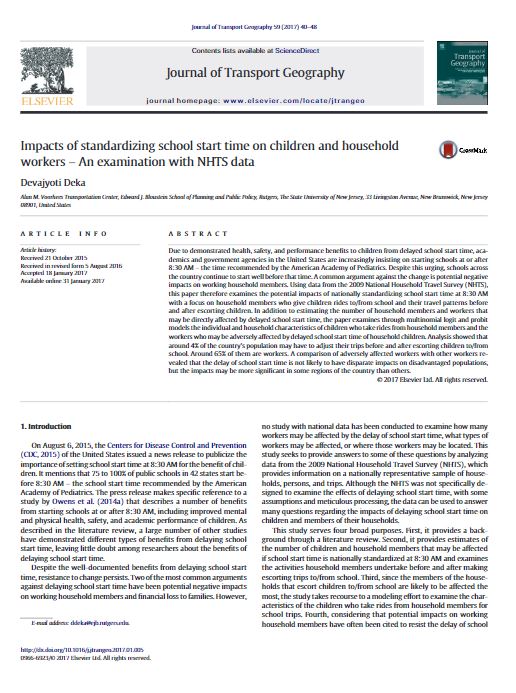Abstract
Due to demonstrated health, safety, and performance benefits to children from delayed school start time, academics and government agencies in the United States are increasingly insisting on starting schools at or after 8:30 AM – the time recommended by the American Academy of Pediatrics. Despite this urging, schools across the country continue to start well before that time. A common argument against the change is potential negative impacts on working household members. Using data from the 2009 National Household Travel Survey (NHTS), this paper therefore examines the potential impacts of nationally standardizing school start time at 8:30 AM with a focus on household members who give children rides to/from school and their travel patterns before and after escorting children. In addition to estimating the number of household members and workers that may be directly affected by delayed school start time, the paper examines through multinomial logit and probit models the individual and household characteristics of children who take rides from household members and the workers who may be adversely affected by delayed school start time of household children. Analysis showed that around 4% of the country’s population may have to adjust their trips before and after escorting children to/from school. Around 65% of them are workers. A comparison of adversely affected workers with other workers revealed that the delay of school start time is not likely to have disparate impacts on disadvantaged populations, but the impacts may be more significant in some regions of the country than others.
